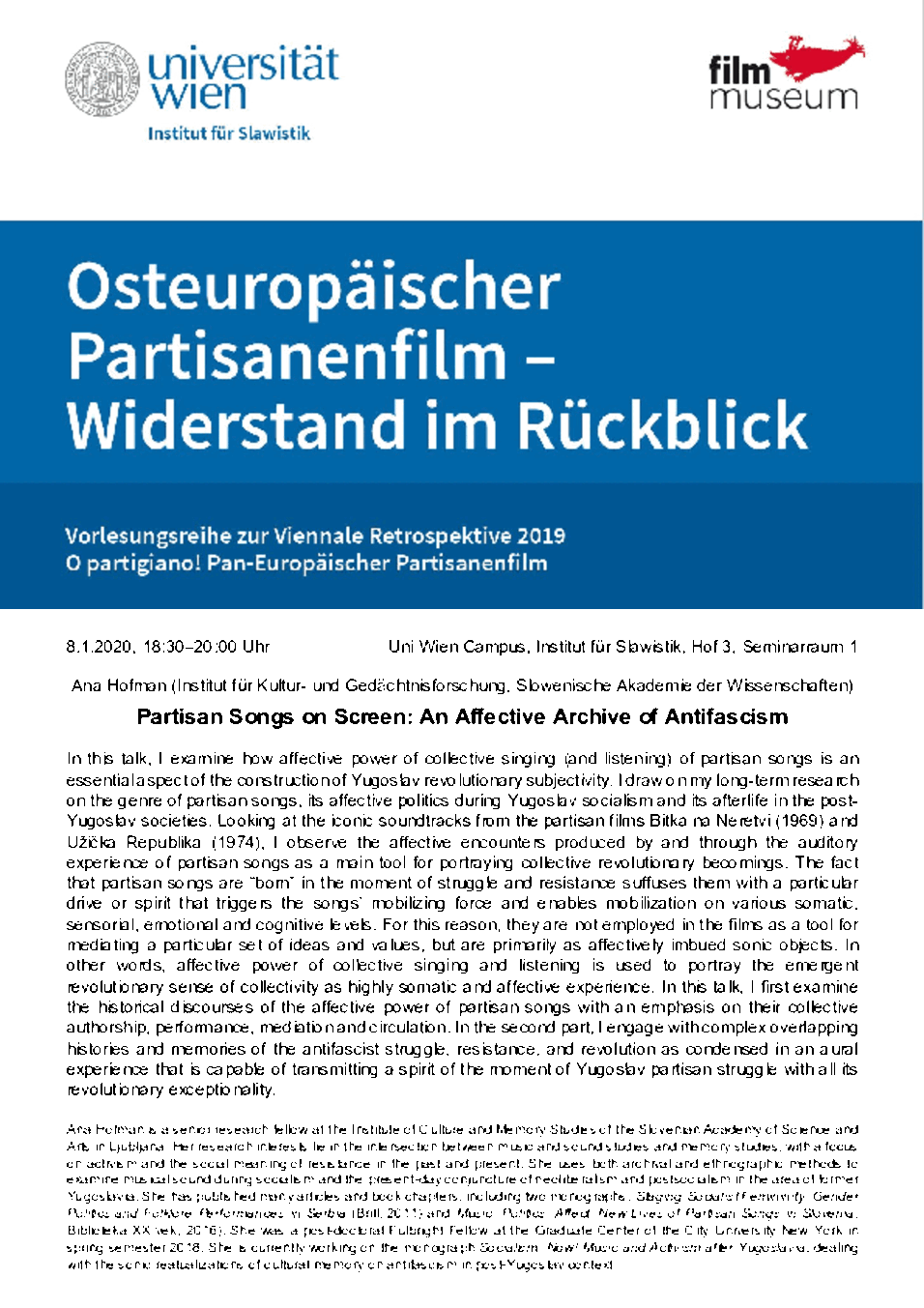Mittwoch, 8.1.2020
18:30–20:00 Uhr
Uni Wien Campus
Institut für Slawistik, Hof 3
Seminarraum 1
In this talk, I examine how affective power of collective singing (and listening) of partisan songs is an essential aspect of the construction of Yugoslav revolutionary subjectivity. I draw on my long-term research on the genre of partisan songs, its affective politics during Yugoslav socialism and its afterlife in the post-Yugoslav societies. Looking at the iconic soundtracks from the partisan films Bitka na Neretvi (1969) and Užička Republika (1974), I observe the affective encounters produced by and through the auditory experience of partisan songs as a main tool for portraying collective revolutionary becomings. The fact that partisan songs are “born” in the moment of struggle and resistance suffuses them with a particular drive or spirit that triggers the songs’ mobilizing force and enables mobilization on various somatic, sensorial, emotional and cognitive levels. For this reason, they are not employed in the films as a tool for mediating a particular set of ideas and values, but are primarily as affectively imbued sonic objects. In other words, affective power of collective singing and listening is used to portray the emergent revolutionary sense of collectivity as highly somatic and affective experience. In this talk, I first examine the historical discourses of the affective power of partisan songs with an emphasis on their collective authorship, performance, mediation and circulation. In the second part, I engage with complex overlapping histories and memories of the antifascist struggle, resistance, and revolution as condensed in an aural experience that is capable of transmitting a spirit of the moment of Yugoslav partisan struggle with all its revolutionary exceptionality.
Ana Hofman is a senior research fellow at the Institute of Culture and Memory Studies of the Slovenian Academy of Science and Arts in Ljubljana. Her research interests lie in the intersection between music and sound studies and memory studies, with a focus on activism and the social meaning of resistance in the past and present. She uses both archival and ethnographic methods to examine musical sound during socialism and the present-day conjuncture of neoliberalism and postsocialism in the area of former Yugoslavia. She has published many articles and book chapters, including two monographs: Staging Socialist Femininity: Gender Politics and Folklore Performances in Serbia (Brill, 2011) and Music, Politics, Affect: New Lives of Partisan Songs in Slovenia; Biblioteka XX vek, 2016). She was a post-doctoral Fulbright Fellow at the Graduate Center of the City University New York in spring semester 2018. She is currently working on the monograph Socialism, Now! Music and Activism after Yugoslavia, dealing with the sonic reatualizations of cultural memory on antifascism in post-Yugoslav context.

